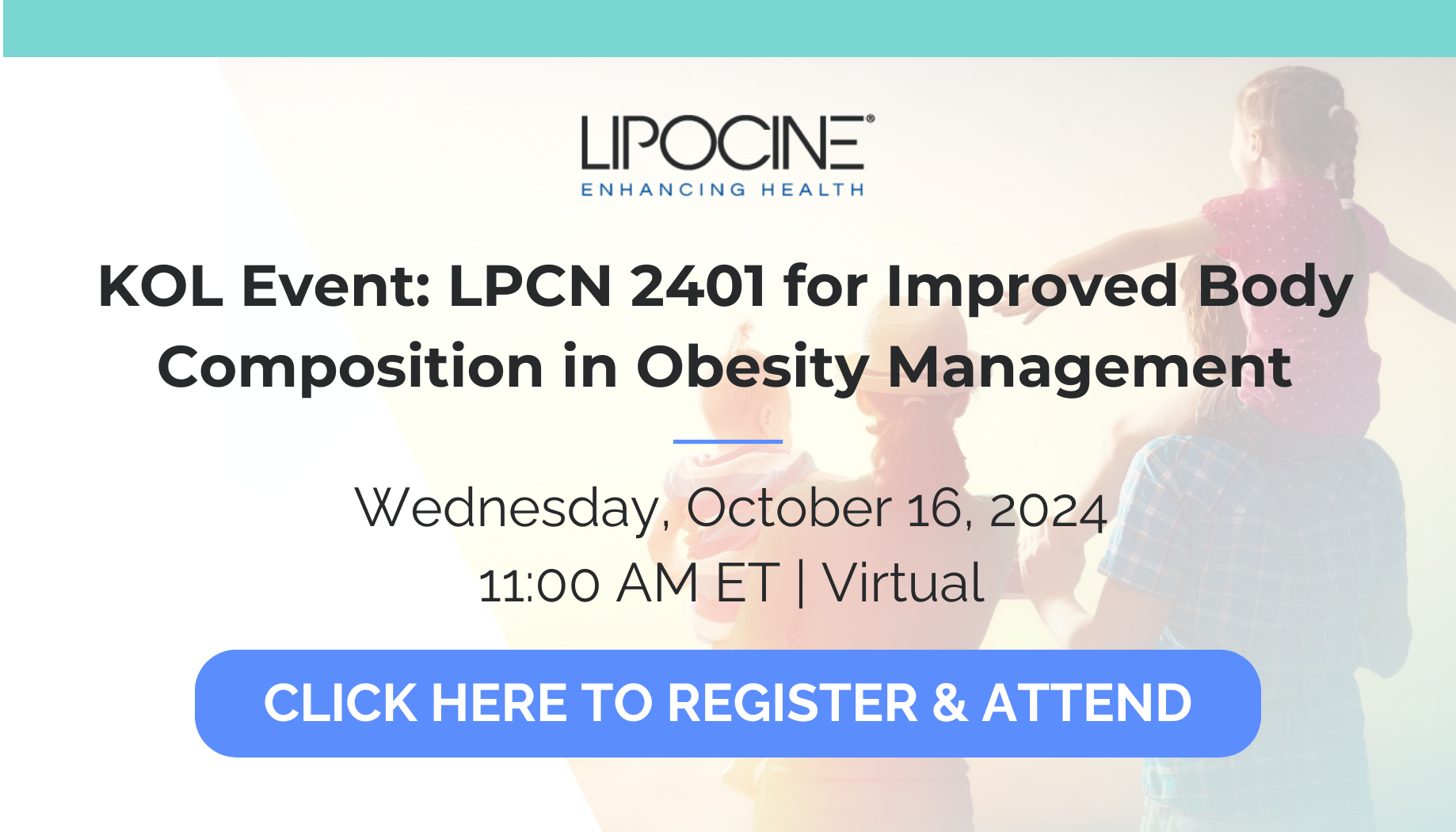The study was an open-label, four-period, four-treatment, randomized, single and multiple dose, PK study in pregnant women of three dose levels of LPCN 1107 and injectable HPC (Makena®). The study enrolled 12 healthy pregnant women (average age of 27 years) with a gestational age of approximately 16 to 19 weeks. Subjects received three dose levels of LPCN 1107 (400 mg BID, 600 mg BID, or 800 mg BID) in a randomized, crossover manner during the first three treatment periods and then received five weekly injections of HPC during the fourth treatment period. During each of the LPCN 1107 treatment periods, subjects received a single dose of LPCN 1107 on Day 1 followed by twice daily administration from Day 2 to Day 8. Following completion of the three LPCN 1107 treatment periods and a washout period, all subjects received five weekly injections of HPC.
Average steady state HPC levels (Cavg0-24) were comparable or higher for all three LPCN 1107 doses than for injectable HPC. HPC levels as a function of daily dose were linear for the three LPCN 1107 doses. Unlike the injectable HPC, steady state exposure was achieved for all three LPCN 1107 doses within seven days. The approved HPC injectable product is a single fixed dose product that does not allow for dose adjustments.
A previous literature study of 250 mg injectable HPC in pregnant women reported that the lowest preterm birth rates were seen when median HPC concentrations exceeded 6.4 ng/mL and that the plasma concentrations of HPC ranged between 3.7 to 56 ng/mL with the injectable HPC.1 With all three LPCN 1107 doses tested, HPC exposure (Cavg0-24) did not fall below 6.4 ng/ml in any study subject.
LPCN 1107 was well tolerated across the three dose levels. No adverse drug reactions, serious adverse events, or deaths were reported during the study.
"We are pleased that the dose linearity and short duration to steady state demonstrated in this study could potentially allow dose adjustments of LPCN 1107 during the course of therapy to optimize the clinical outcome," said Dr.
About LPCN 1107
LPCN 1107 is a novel oral product candidate in development for the prevention of preterm birth in women with singleton pregnancy. Potential benefits of Lipocine's oral product candidate relative to current injectable products include: customized dosing for patients and the elimination of pain and site reactions associated with weekly injections, elimination of weekly doctor visits or visits from the nurse, and elimination of interference/disruption of personal, family or professional activities associated with weekly visits. LPCN 1107 has received orphan drug designation from the
About
Forward-Looking Statements
This release contains "forward looking statements" that are made pursuant to the safe harbor provisions of the Private Securities Litigation Reform Act of 1995 and include statements that are not historical facts relating to Lipocine's common stock and preferred stock, the
1Caritis SN, Venkataramanan R, Thom E, et al. Relationship between 17-alpha hydroxyprogesterone caproate concentration and spontaneous preterm birth. Am J Obstet Gynecol 2014;210(2):128.

